
Loading...
Publisher: Harriman House, 2010
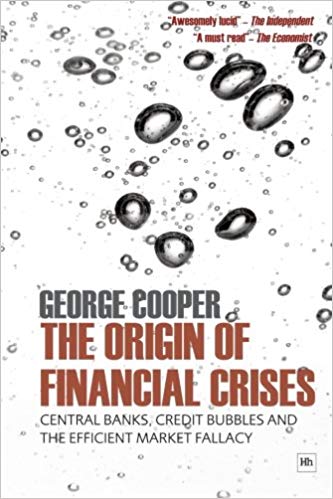 In a series of disarmingly simple arguments financial market analyst George Cooper challenges the core principles of today's economic orthodoxy and explains how we have created an economy that is inherently unstable and crisis prone. With great skill, he examines the very foundations of today's economic philosophy and adds a compelling analysis of the forces behind economic crisis. His goal is nothing less than preventing the seemingly endless procession of damaging boom-bust cycles, unsustainable economic bubbles, crippling credit crunches, and debilitating inflation. His direct, conscientious, and honest approach will captivate any reader and is an invaluable aid in understanding today's economy.
In a series of disarmingly simple arguments financial market analyst George Cooper challenges the core principles of today's economic orthodoxy and explains how we have created an economy that is inherently unstable and crisis prone. With great skill, he examines the very foundations of today's economic philosophy and adds a compelling analysis of the forces behind economic crisis. His goal is nothing less than preventing the seemingly endless procession of damaging boom-bust cycles, unsustainable economic bubbles, crippling credit crunches, and debilitating inflation. His direct, conscientious, and honest approach will captivate any reader and is an invaluable aid in understanding today's economy.
Publisher: Harriman House, 2014
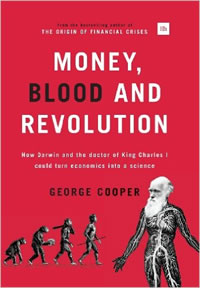 Economics is a broken science, living in a kind of Alice in Wonderland state believing in multiple, inconsistent, things at the same time. Prior to the financial crisis, mainstream economics argued simultaneously for small government on taxation, regulation and spending, but big government on monetary policy. After the financial crisis, economics is now arguing for more government spending and for less government spending. The premise of this book is that the internal inconsistencies between economic theories - the apparently unresolvable debates between leading economists and the incoherent policies of our governments - are symptomatic of economics being in a crisis. Specifically, in a scientific crisis. The good news is that, thanks to the work of scientist and philosopher Thomas Kuhn, we know what needs to be done to fix a scientific crisis. Moreover, there are two scientists in particular whose ideas could show how to do this for economics: Charles Darwin, the man who discovered evolution, and William Harvey, doctor to King Charles I and the first man to understand blood flow and the workings of the human heart. In Money, Blood and Revolution, bestselling financial writer George Cooper explains how the ideas of Darwin and Harvey could revolutionise economics, making it more scientific and understandable, and might even reveal the true origin of economic growth and inequality. Taking readers on a gripping tour of scientific revolution, social upheaval and the secrets of money and debt, this is an unmissable read for anyone curious to understand how the world really works - and the amazing future of economics.
Economics is a broken science, living in a kind of Alice in Wonderland state believing in multiple, inconsistent, things at the same time. Prior to the financial crisis, mainstream economics argued simultaneously for small government on taxation, regulation and spending, but big government on monetary policy. After the financial crisis, economics is now arguing for more government spending and for less government spending. The premise of this book is that the internal inconsistencies between economic theories - the apparently unresolvable debates between leading economists and the incoherent policies of our governments - are symptomatic of economics being in a crisis. Specifically, in a scientific crisis. The good news is that, thanks to the work of scientist and philosopher Thomas Kuhn, we know what needs to be done to fix a scientific crisis. Moreover, there are two scientists in particular whose ideas could show how to do this for economics: Charles Darwin, the man who discovered evolution, and William Harvey, doctor to King Charles I and the first man to understand blood flow and the workings of the human heart. In Money, Blood and Revolution, bestselling financial writer George Cooper explains how the ideas of Darwin and Harvey could revolutionise economics, making it more scientific and understandable, and might even reveal the true origin of economic growth and inequality. Taking readers on a gripping tour of scientific revolution, social upheaval and the secrets of money and debt, this is an unmissable read for anyone curious to understand how the world really works - and the amazing future of economics.
Publisher: Elliot & Thompson, 2015
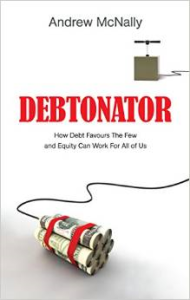 We are all swamped in debt. Households, corporations, governments… debt has become so ingrained in our culture, it is an unquestioned fact of life. However, there is another way of bankrolling our economic future, one that could lead to a much fairer society: equity. There is increasing evidence that over reliance on debt finance is damaging both business and society. Debt leaves control and ownership in the hands of too few: it is a direct source of extreme inequality. Equity finance can redress the balance; by broadening direct ownership of assets through equity, we can make everyone better off – not just the few. There is value in equity way beyond what financiers, economists, investment bankers and many corporate CEOs will tell you. It is the value of aligned interests, of trust and fairness, of optimism and patience, of stability and simplicity, of shared endeavour. Only when we unleash this value will economic democracy secure the political democracy that we cherish.
We are all swamped in debt. Households, corporations, governments… debt has become so ingrained in our culture, it is an unquestioned fact of life. However, there is another way of bankrolling our economic future, one that could lead to a much fairer society: equity. There is increasing evidence that over reliance on debt finance is damaging both business and society. Debt leaves control and ownership in the hands of too few: it is a direct source of extreme inequality. Equity finance can redress the balance; by broadening direct ownership of assets through equity, we can make everyone better off – not just the few. There is value in equity way beyond what financiers, economists, investment bankers and many corporate CEOs will tell you. It is the value of aligned interests, of trust and fairness, of optimism and patience, of stability and simplicity, of shared endeavour. Only when we unleash this value will economic democracy secure the political democracy that we cherish.
Publisher: Harriman House, 2016
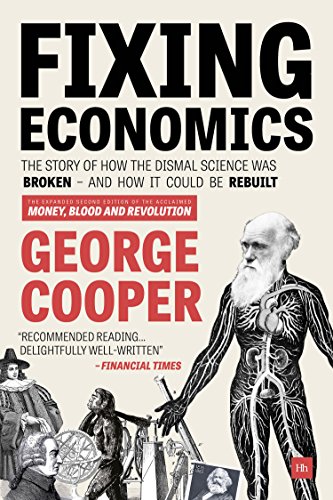 What's the connection between a 16th century Polish astronomer and a 19th century British naturalist? Nicolaus Copernicus and Charles Darwin may have lived three centuries apart but their thinking changed scientific perspectives. Thanks to Copernicus, we know the sun and not the earth is at the centre of the Universe, whilst Darwin's theory of evolution challenged the orthodox view that the species were created the same time as earth and in their current form. So what about the science of economics? Is it also due for a major re-think? Yes, according to George in his new book 'Fixing Economics' where he argues that modern economics needs to embrace a new way of looking at and understanding the world if financial crises are to be prevented in the future.
What's the connection between a 16th century Polish astronomer and a 19th century British naturalist? Nicolaus Copernicus and Charles Darwin may have lived three centuries apart but their thinking changed scientific perspectives. Thanks to Copernicus, we know the sun and not the earth is at the centre of the Universe, whilst Darwin's theory of evolution challenged the orthodox view that the species were created the same time as earth and in their current form. So what about the science of economics? Is it also due for a major re-think? Yes, according to George in his new book 'Fixing Economics' where he argues that modern economics needs to embrace a new way of looking at and understanding the world if financial crises are to be prevented in the future.
 0
0
 2016: A Tale of Two Walls
2
2016: A Tale of Two Walls
2
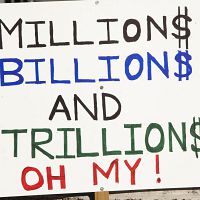 Stock market superstars and the danger of a buy-and-hold investment strategy
2
Stock market superstars and the danger of a buy-and-hold investment strategy
2
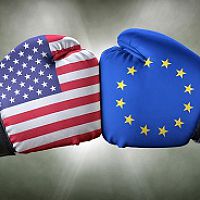 In Search of Stability & Growth - If only Europe was more like the US
2
In Search of Stability & Growth - If only Europe was more like the US
2
 Regulating Psychopaths
2
Regulating Psychopaths
2
 Debtonator - How Equity Can Work for All of US
2
Debtonator - How Equity Can Work for All of US
2
 Modern Monetary Theory - The Magic Money Tree
2
Modern Monetary Theory - The Magic Money Tree
2
 Still Flashing Green: Equities in a world of higher growth and financial repression
2
Still Flashing Green: Equities in a world of higher growth and financial repression
2
 Depressed lobsters and the dividend yield trap
2
Depressed lobsters and the dividend yield trap
2
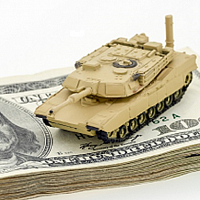 Monetary Policy on a War Footing
2
Monetary Policy on a War Footing
2
 Meerkats and Market Behaviour - Thoughts on October's stock market fall
2
Meerkats and Market Behaviour - Thoughts on October's stock market fall
2
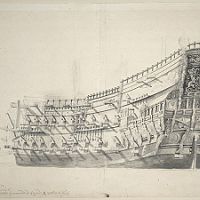 Investment Letter - Constant Reformation
2
Investment Letter - Constant Reformation
2
 Is corporate debt addictive?
2
Is corporate debt addictive?
2
 Can fair fees make active managers more sustainable?
2
Can fair fees make active managers more sustainable?
2
 Debt & the magical mathematics of Brahmagupta
2
Debt & the magical mathematics of Brahmagupta
2
 Why ownership matters more than ever
2
Why ownership matters more than ever
2
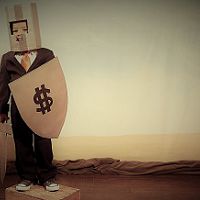 The Lost Shield? - The small print in Trump's tax plan
2
The Lost Shield? - The small print in Trump's tax plan
2
 Hanging the Wrong Contract?
2
Hanging the Wrong Contract?
2
 Facts not Opinions
2
Facts not Opinions
2
 Revolutionary Fervour
2
Revolutionary Fervour
2
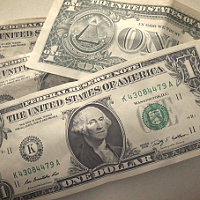 An Impossible Trinity?
2
An Impossible Trinity?
2
 Tales of an Astronaut - Lessons from the Unknown
2
Tales of an Astronaut - Lessons from the Unknown
2
 A New Maestro? Observations on an important speech by Fed Chairman Powell
2
A New Maestro? Observations on an important speech by Fed Chairman Powell
2
 Over Easy - Can Monetary Policy Become Self-Defeating?
2
Over Easy - Can Monetary Policy Become Self-Defeating?
2
 Lumbering corporate dinosaurs face mass extinction
2
Lumbering corporate dinosaurs face mass extinction
2
 Insights
1
Insights
1
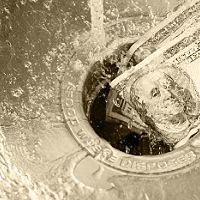 Reckless Prudence - How to break a pension system
2
Reckless Prudence - How to break a pension system
2
 Captain Kirk and the science of economics
2
Captain Kirk and the science of economics
2
 Revival of the Fittest
2
Revival of the Fittest
2
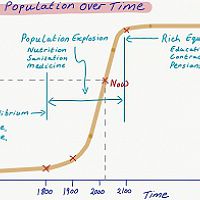 The Anxiety Machine - The end of the world isn't nigh
2
The Anxiety Machine - The end of the world isn't nigh
2
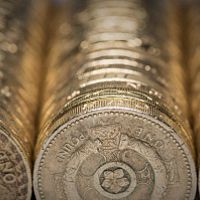 Is it time to rethink monetary policy?
2
Is it time to rethink monetary policy?
2
 Hedonism and the value of money - Part I
2
Hedonism and the value of money - Part I
2
 Hedonism and the value of money - Part II
2
Hedonism and the value of money - Part II
2
 A creditable recovery
2
A creditable recovery
2
 Crisis Economics
2
Crisis Economics
2
 Norway Moves to America - Mean reversion and industrial revolutions
2
Norway Moves to America - Mean reversion and industrial revolutions
2
 Investment Letter - Eternal Adaptation
2
Investment Letter - Eternal Adaptation
2